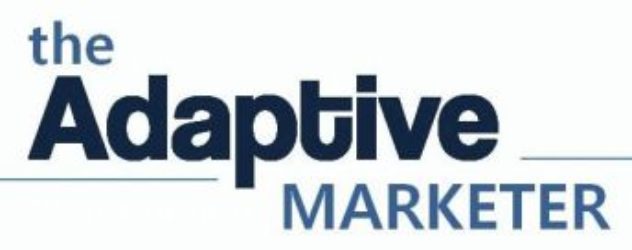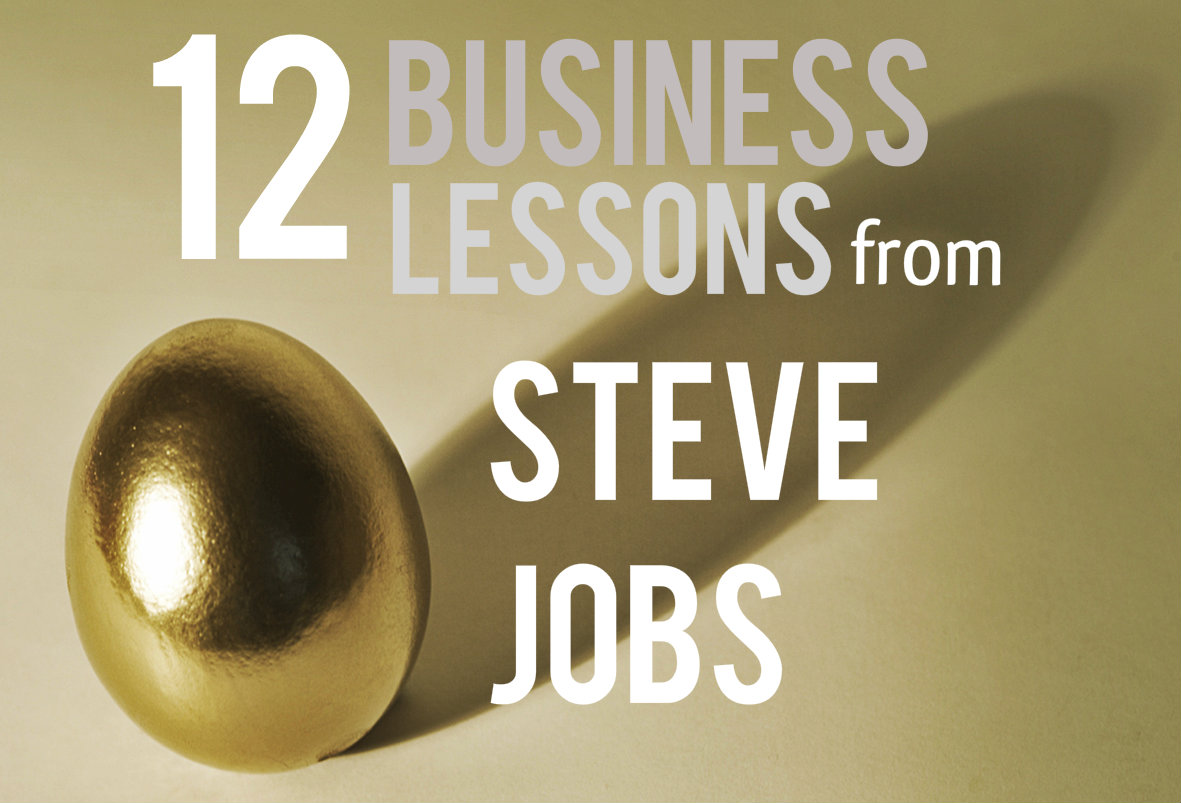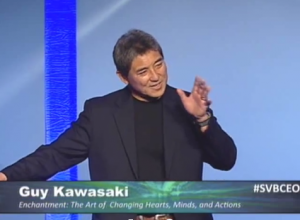How much can we learn from Steve on Innovation, Marketing and Business Strategy?
A few days ago I stumbled on this video where Guy Kawasaki shared 12 lessons he learned from Steve Jobs. Guy worked with Steve in the early days of the Mac. This presentation was delivered a few hours after Steve passed away. It is been viewed almost a half a million times, but it is 47 minutes long. I thought I should share a summary from my notes:
- Experts” are clueless – There are many people who will claim to be gurus and experts. Don’t trust them. They are more often mistaken.
- Customers cannot tell you want they need –” Back in 1984 they would have asked for a faster, cheaper Apple II (not a Mac). The day you hear Apple is using focus groups to create future products, that’s the day to short the Apple stock”. For more, here is a post on Steve Job’s Genius Ability to Innovate.
- The biggest challenges beget the best work – If you are going to change the world, you need to work on challenges no one else has solved before.
- Design matters. “Design is the product.” Especially for Apple, but true for more and more industries today. Another post on the importance of design.
- Use big graphics and big font in your presentations. Jobs was a master presenter. His slides make bold statements and don’t compete for attention with what he is saying.
- Jump curves, not better sameness – What Guy means is that Steve was not interested in incremental improvements, but on disruptions that completely change the game, Guy uses the example of the change from ice factories to having ice available in your refrigerator.
- It either works or does not work – “Don’t worship religions and fads. We did not care if it was ‘open’ or ‘closed’ only that it worked.”
- Value is different than Price. I could not agree more. Here are a few posts on the topic.
- Hire A players exclusively . A players hire A players. B players hire C players. As Jim Collins wrote: the most important thing is people – ‘who is on the bus’.
- Real CEOs can demo. Meaning executives need to be users of the products they sell, they need to be competent and demonstrate their passion.
- Entrepreneurs ship, not slip. Steve pushed his team to deliver on time. He did not wait for a perfect product (the first iPhone had many limitations) but it was developed in record time. Then there is time for continuous improvement.
- Somethings need to be believed to be seen. “If you wait for proof it will never happen.” This is so true
If you want to watch the entire video, you will find it here.


